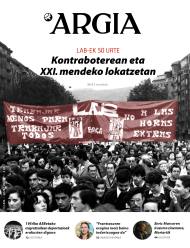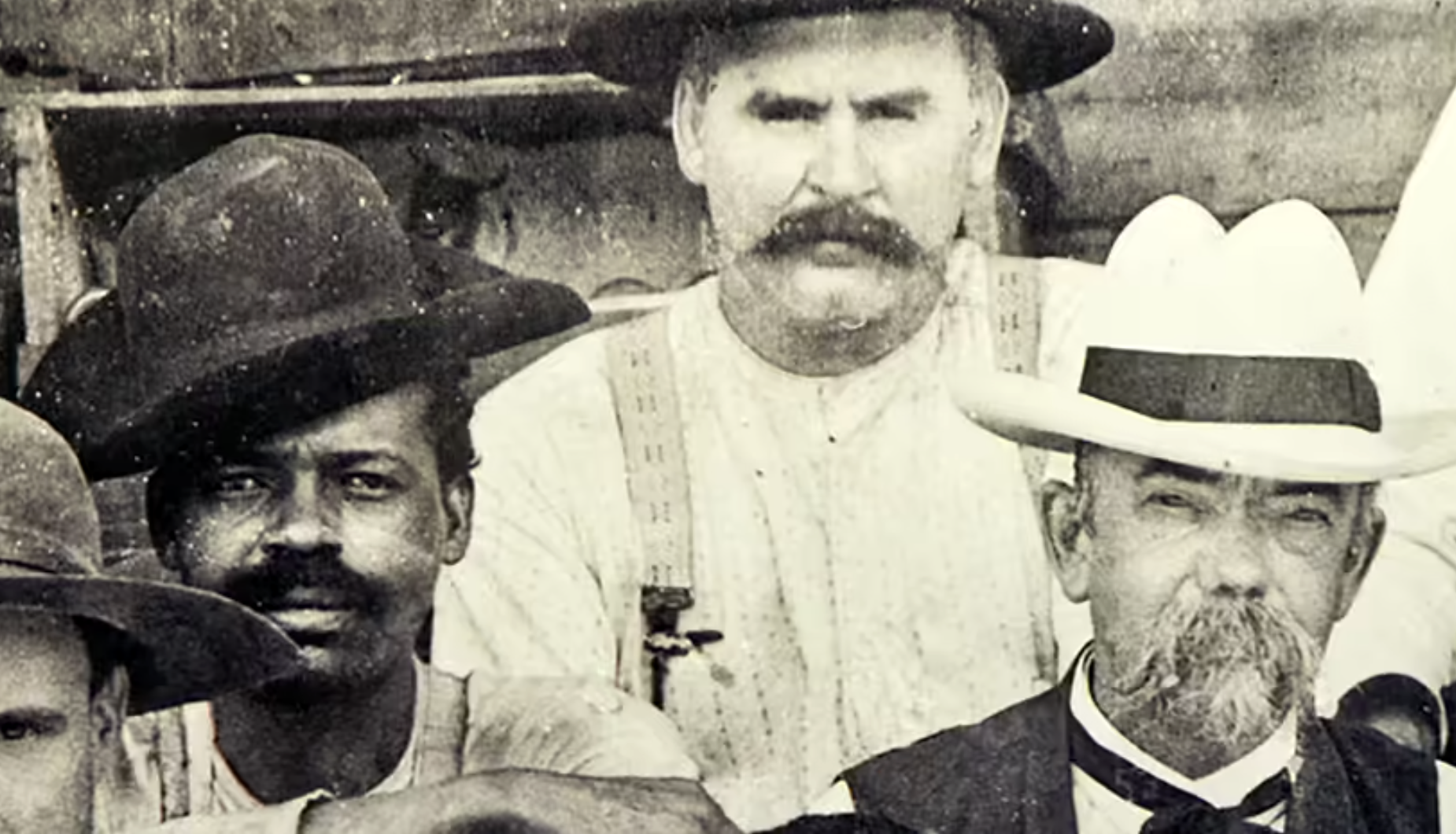Don't call mass deportation, call racist marketing campaigns.
- In most of the rich countries of the West, the far-right is constantly drawing attention to hatred and racism towards migrants. Undertaking deportation plans has been the response of many governments, either to leave Afghans in the hands of the Taliban, as Germany is thinking, or to kick off the Rwandese residents of the United Kingdom, as Rishi Sunak intended. But the champion of deportation intent, Donald Trump, is the one that comes to mind the most: sending millions of Mexicans across the border. What does the story say about it?

Cascante's cure is not just in the pulpit when he launches those of Jesus Christ against migrants. In almost all the rich countries of Europe and the West the trend is the same: to criminalise the one who comes in search of a better life and to provoke the tamboril of racism so that all bridges and relationships are burned in the fire.
This summer in the United Kingdom we saw hundreds of ultras attacking members of the Muslim community, when it was said that the alleged killer of three girls in Southport was related to Rwandese refugees. It was actually a fake spread on social media by Nazi influencers like Tommy Robinson. Rishi Sunak’s plan to deport the Rwandese by plane stayed nowhere in July, after the elections were lost by the Tories, but only by turning on the Red X torch has it been enough to put Rwandese citizens back in the spotlight.
In Germany, German Chancellor Olaf Scholz has made an excuse for the attack on Solingen, in which the murderer is a Syrian refugee, to promise that deportations will proliferate. For the time being, passports have been given to two dozen Afghans to receive a warm welcome of the talibanes.La deportation has become a buzzword among the authorities and they have put it into one of the stupid
Google news we receive on our mobiles, such as the cayucos that arrive in the Canary Islands. This news will not tell us that in 2023 more than 6,000 people drowned on this Atlantic route died.
The pressure is such that even the leader of a government that is considered progressive, the president of the Spanish Government, Pedro Sánchez, wants to promote a "circular migration" in Spain. PP members have spoken at least without drowning and have called for mass deportations – to follow the suicidal tendency to imitate VOX – although they know that this is illegal and quite the opposite of human rights.
But the champion who talks about mass deportations is Donald Trump. The White House candidate has once again demonstrated that he has the longest suit to give wood: One of the top pledges of his campaign is the deportation of 11 million people who are unlawfully in the United States. At the Republican National Convention, held in mid-July, it once again proclaimed that "the largest deportation in American history" is the largest deportation in American history.
Where did he get that crazy idea from? At this conference he launched a clue: "We will have to deport more than Dwight Eisenhower." Trump is inspired by the Operation Wetback (Operation Sorbalda Bustia), which began in 1954, when Eisenhower was president of the United States, and which extended to the United States.
In that year, 1.3 billion Mexican migrants were officially expelled from EE.UU. “The Mexicans who were swimming from the Bravo River to Texas were selflessly calling “wet shoulders.” But we now know that that operation was a campaign of terror and marketing, and that, rather than deporting people, it had other interests. All of this can be read in a BBC report signed by Angel Bermúdez: "How was the largest mass deportation of migrants in the United States 70 years ago? ", asks the author.
Self-deportations
In May 1954, the U.S. Attorney General convened a press conference in which he assured that a "total war" would begin against Mexicans without documents that existed in the southern states. Weeks later, dozens of agents concentrated in California and Arizona to launch the network raids. In the first week alone, some 7,000 people were taken by bus to Nogales City to be deported. Three months later, Joseph Swing, the head of the U.S. border police, Border Patrol, said more than a million migrants were arrested and returned to Mexico.
But historian Kelly Lytle Hernandez reassures the BBC that these figures are infested. In fact, he says that they were no more than 300,000 and that most people returned by their own means: "It was a terrors' campaign to scare communities, to deport themselves," he added. Thus, it is understood that the public communication of the operation took place one month in advance, as the interested use of the media was key: "The press constantly went to places where border patrols carried out raids (...) to symbolize that the operation had a larger dimension than it actually had."
Hernandez knows what he is referring to. The African-American historian lived as a child in similar situations where the police recorded and welcomed him and his friends on the pretext of the fight against drugs. With a scholarship, Hernández investigates the control of migrants and the history of the Border Patrol, and has become a "rebel historian" in the academic world.
As he explained, this attack was aimed at forcing landowners into the Bracero programme. With this program, they imported cheap labor from Mexico for two decades. In fact, deported migrants returned to the United States, but legalized within the program.
In other words, deportation was a bluff, because migrant work remained necessary for the U.S. economy in crisis. "However, it was a huge publicity blow to the Border Patrol and 70 years later the legend of 'the biggest deportation of the United States' is still alive," says Bermúdez in the BBC report.
However, Operation Wetback meant the militarization of the border, also the beginning of modern deportation networks that we know today, and increased racism against the Mexican community when in the United States. Maybe Trump and his puppets in Europe want something like this?
The case of Mexican migrants in 1954 shows that deportation plans, besides being unfair, illegal and unworkable, are economically harmful to athletes, but politically useful to the supremacists who stand before them.
In 2017, Indonesia and the Netherlands signed an agreement to return the heritage stolen by the European country because of colonialism for three centuries. The Indonesian responsible for the return process, Gusti Agung Wesaka Puja, explained that this agreement "was important in... [+]
Greece 1975. The country began the year as a republic, three weeks earlier, in the referendum on 8 December 1974, after the citizens decided on the end of the monarchy.
A decade earlier, in 1964, when King Paul I died, his son Constantine took the throne at the age of 23.
But... [+]
For pedagogical or methodological reasons, historians tend to fragment and divide historical periods of the past into deadlines. There are traditional times that we all know (Prehistory, Antiquity, Middle Ages, Modern and Contemporary Ages), but also several sub-ages.
These... [+]
Copenhagen, 18 December 1974 At 12 noon a ferry arrived at the port, from where a group of about 100 Santa Claus landed. They brought a gigantic geese with them. The idea was to make a kind of “Trojan Goose” and, upon reaching the city, to pull the white beard costumes... [+]
Tennessee (United States), 1820. The slave Nathan Green is born, known as Nearest Uncle or Nearest Uncle. We do not know exactly when he was born and, in general, we have very little data about him until 1863, when he achieved emancipation. We know that in the late 1850s Dan... [+]
The Centre Tricontinental has described the historical resistance of the Congolese in the dossier The Congolese Fight for Their Own Wealth (the Congolese people struggle for their wealth) (July 2024, No. 77). During the colonialism, the panic among the peasants by the Force... [+]





















